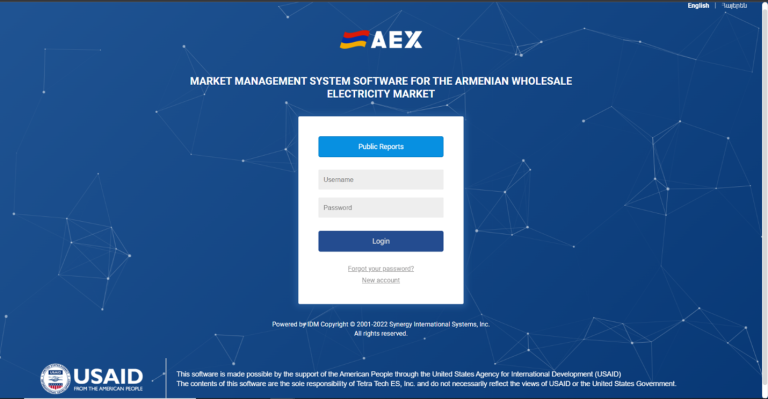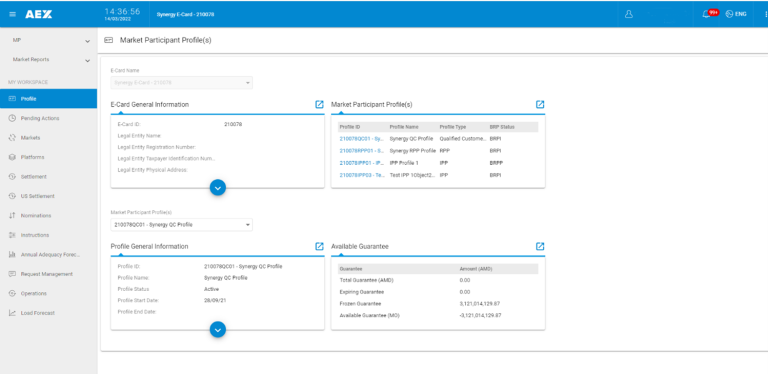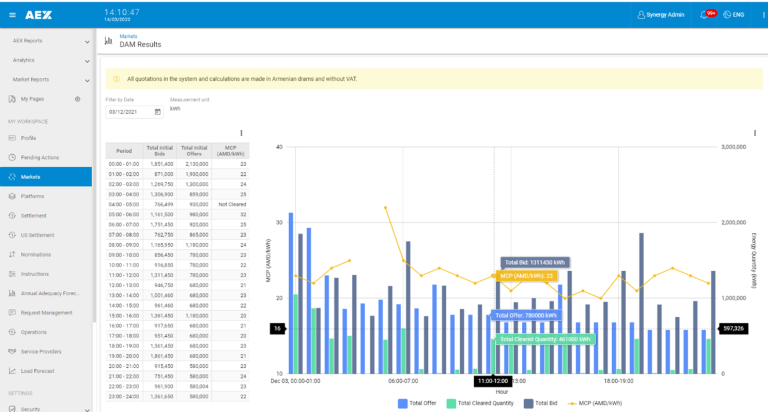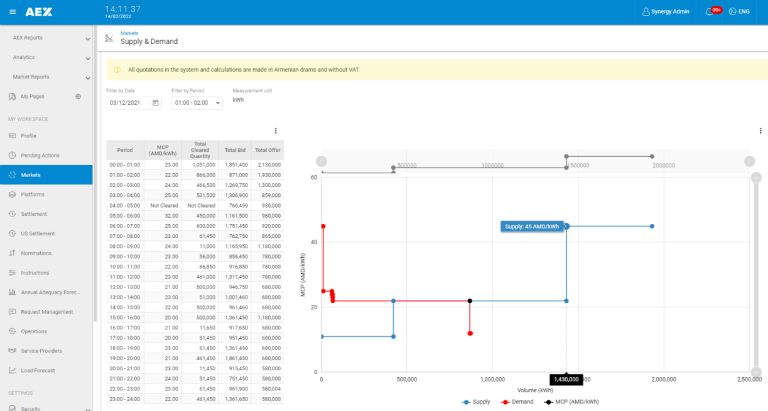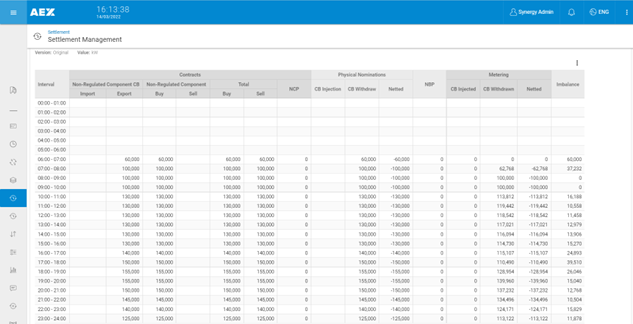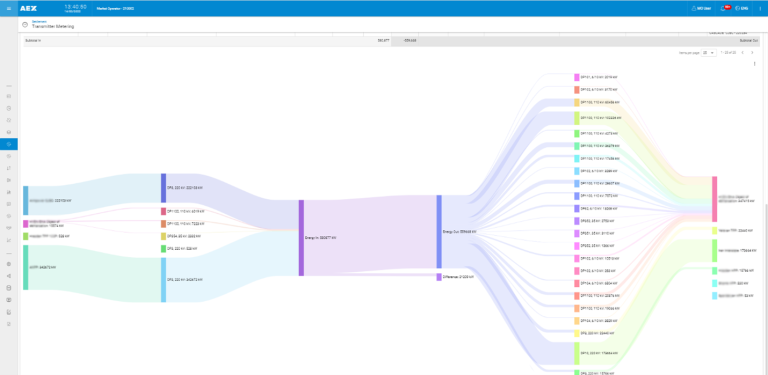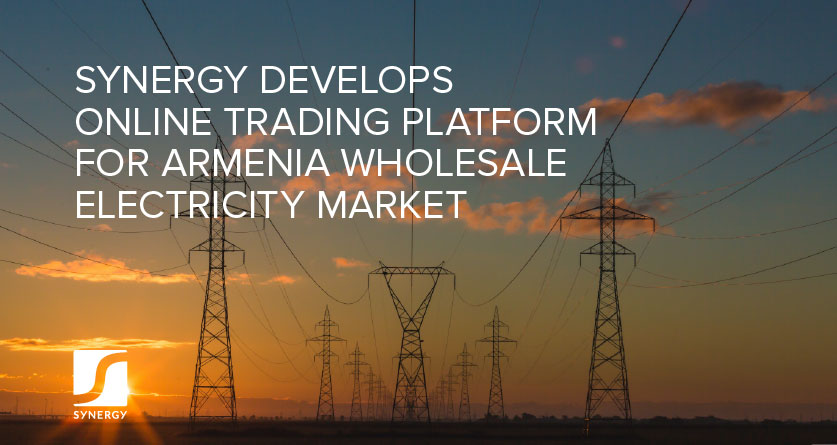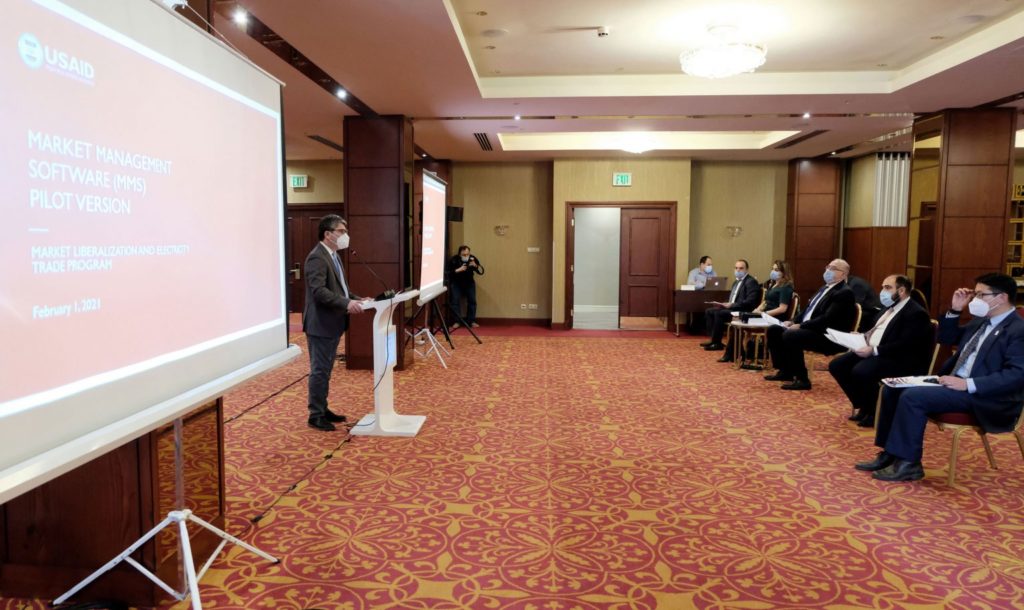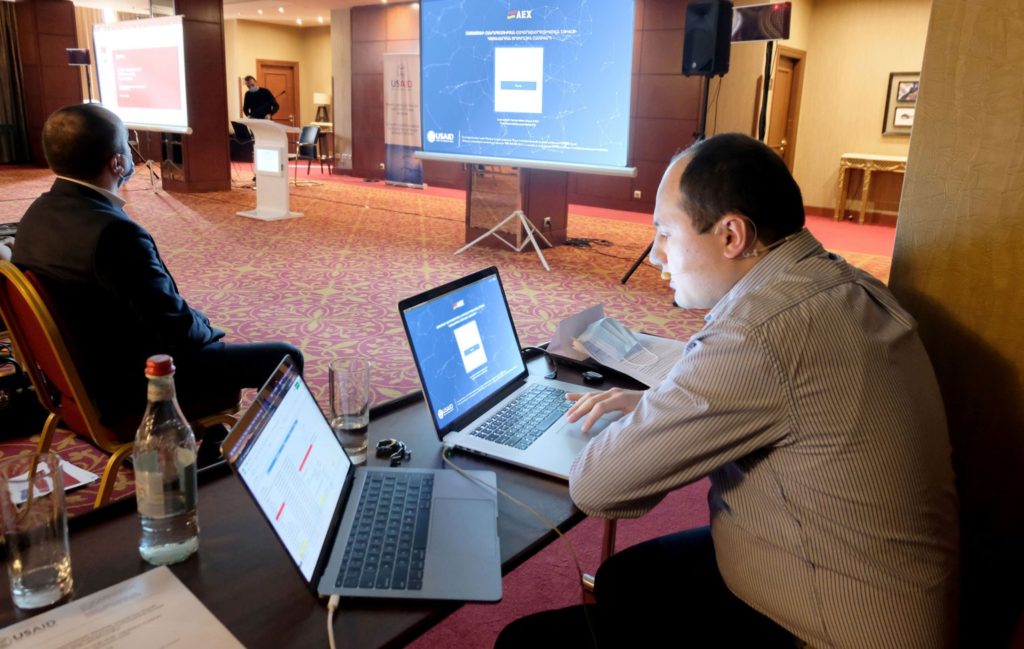On February 1, 2022, the Armenian Energy Exchange (AEX) software (Wholesale Electricity Market Management System) officially went live, ushering in a new era of technological advancement for the Settlement Center CJSC (a company owned by the Ministry of Territorial Administration and Infrastructure), and significantly increasing market liberalization and cross-border trade for the electricity producers, suppliers, and purchasers of energy throughout Armenia. The launch of the AEX will assist the Government of Armenia, the Public Services Regulatory Commission, and the Market Participants in shaping a conducive investment climate, fostering competition in the domestic market, and creating new opportunities for regional trade.
Following Armenian independence from The Soviet Union in 1991, country-wide efforts to liberalize markets, including the energy market began. USAID/Armenia assisted with several of these efforts, including the establishment of an independent energy regulator, helping to increase competition in the electricity and gas sectors, initiating large-scale privatization of energy generation and distribution, and substantially improving the delivery of electricity across the country. During this process over the past couple of decades, another challenge emerged. Due to the ageing infrastructure in the country and the Metsamor Nuclear Plant, a Soviet-era power plant which produced a significant amount of Armenia’s energy, Armenia was creating an energy surplus, and thus wasting energy, as it had no mechanism to facilitate the export of electricity to neighboring countries such as Georgia. Addressing this challenge, along with continued market liberalization, and increasing the investment opportunities for clean energy in Armenia became the focus of the recent USAID/Armenia project.
In June 2019, Synergy began work, via subcontract to Tetra Tech ES, on the USAID/Armenia funded Market Liberalization and Electricity Trade (MLET) Program. The goal of the program is to diversify the energy sources within Armenia, make the sector attractive for clean energy investment through technological advancement, increase energy independence, and strengthen regional economic integration through the creation of trade mechanisms.
Synergy was tasked with the design, development, pilot roll-out, future technical support and Market Participant training of the AEX, a system custom built for the wholesale energy market of Armenia. This month, the AEX officially launched. The system was implemented for the Settlement Center in Armenia and manages the entire wholesale energy market. Like every market, it has two sides it manages, the demand and supply of energy, and the consumers and purchasers of energy. The Settlement Center handles all transactions between these two sides of the market in Armenia, and the AEX is the platform by which the entire market is facilitated.
The AEX MMS has 5 core modules:
Users Database and Market Participant Management Module – The AEX provides User Management, licensing, energy metering, and financial guarantee information on the suppliers and purchasers of energy.
The Market Module – The AEX fully facilitates the trading of energy in different segments of the Market.
Settlements Module – The AEX executes transactions, from bilateral contracts, online auction management, economic modeling, placing, and executing of bids, and settling transactions via contracts and invoices.
Operations Module – The AEX supports the Market Server Provider, setting and dynamically changing Tariffs, Service fees and other system validations.
Monitoring Module – The AEX provides a suite of statistical analysis features that market participants, potential investors, or government personnel can use to better understand the energy market. Dashboards and custom reports can be created on a wide variety of different segments of the energy market.
Within the 5 Core modules, the AEX MMS supports 9 fundamental functionalities:
- Online registration of Market Participants
- Management of balance groups and schedules
- Electronic registration and confirmation of bilateral contracts
- Day-ahead trading and the online auction toolset
- Automatic settlement of imbalance and related service charges
- Invoicing and financial operations management
- Market monitoring and analysis
- Real-time metering data collection and allocation
- Transaction allocation (daily nominations per delivery point)
